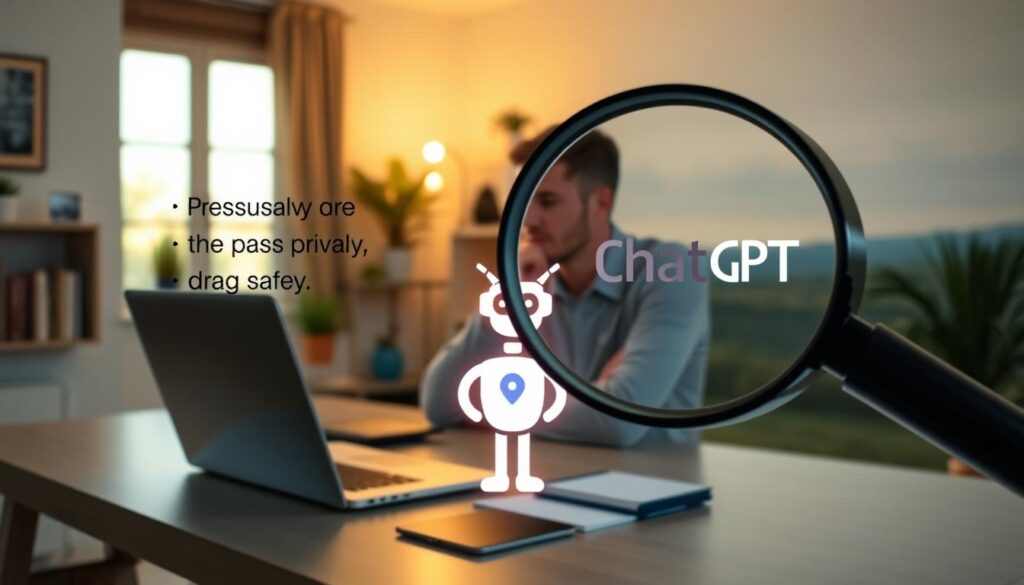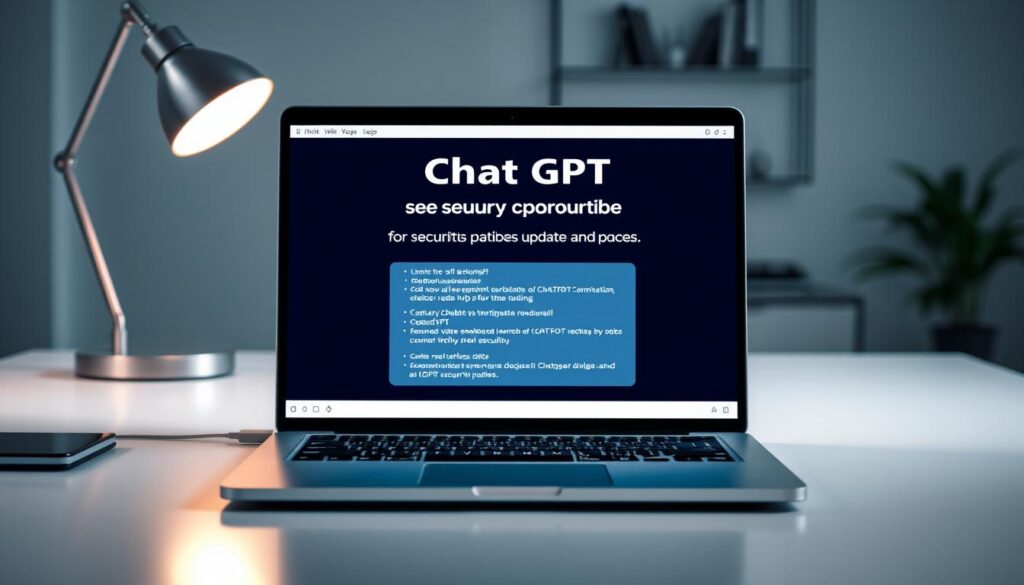ChatGPT has quickly become a go-to tool for millions, transforming how we work, learn, and communicate. Its rapid adoption across industries highlights its versatility and potential. But with great power comes great responsibility—understanding its safety and security measures is crucial.
OpenAI, the creator of ChatGPT, has implemented robust protections to ensure chatgpt safe use. These include encryption, access controls, and annual security audits. These measures help safeguard user data and prevent misuse. However, no system is entirely risk-free.
Real-world incidents, like the Samsung source code leak and Europol’s phishing warnings, remind us of potential vulnerabilities. While OpenAI’s guardrails are strong, users must also practice good digital hygiene. Combining these efforts ensures a safer experience.
For added security, tools like Norton 360 Deluxe can complement ChatGPT’s built-in protections. Staying informed and proactive is the best way to enjoy the benefits of this powerful AI tool responsibly.
Key Takeaways
- ChatGPT is widely used across industries and demographics.
- Built-in safety measures include encryption and access controls.
- Real-world risks highlight the need for user vigilance.
- Combine OpenAI’s protections with personal security practices.
- Tools like Norton 360 Deluxe can enhance overall safety.
Introduction to ChatGPT and Its Safety Concerns
ChatGPT, a cutting-edge language model, has revolutionized digital interactions. Built on advanced neural networks, this chatbot processes vast datasets to deliver human-like responses. Its ability to understand and generate text makes it a powerful tool for various applications.

However, the technology’s reliance on extensive data raises concerns. In March 2023, a 9-hour outage exposed user chat histories and payment details. This incident highlighted potential vulnerabilities in the system’s design.
What is ChatGPT?
ChatGPT operates using Generative Pre-trained Transformer (GPT) architecture. This language model learns patterns from massive datasets to generate coherent text. Its applications range from customer support to creative writing.
Despite its capabilities, the chatbot is not without flaws. Instances of fabricated responses, like a lawyer using false court citations, underscore the need for caution. Users must verify the information provided by AI tools.
Why Safety Matters When Using AI Tools
AI’s dependency on data introduces risks like bias and misuse. Inherent biases in training datasets can lead to skewed outputs. Additionally, third parties may exploit these tools for malicious purposes.
Governments are taking steps to regulate AI. The EU AI Act and Biden’s executive order aim to establish guidelines for ethical AI use. Staying informed about these developments ensures safer interactions with chatbot technologies.
Is ChatGPT Safe? Understanding the Risks
Understanding the risks of using advanced AI tools like ChatGPT is essential for responsible use. While the technology offers immense benefits, it’s not without its challenges. From data privacy concerns to potential misuse by third parties, users must stay informed to navigate these risks effectively.

Data Privacy Concerns
One of the primary risks involves how ChatGPT handles data. OpenAI retains user inputs for 30 days before deletion, which raises questions about long-term privacy. In April 2023, a loophole allowed malware creation using ChatGPT, exposing vulnerabilities in its design.
Another concern is the low detection rate of malicious code. For instance, a screensaver malware case showed only 5 out of 69 antivirus programs flagged it as harmful. This highlights the need for users to remain vigilant when interacting with AI tools.
Potential for Misuse by Third Parties
ChatGPT’s open nature makes it a target for hackers and malicious actors. In July 2023, WormGPT attacks demonstrated how AI can be weaponized for phishing and other scams. These incidents underscore the risks posed by third parties exploiting the tool’s capabilities.
Supply chain vulnerabilities also play a role. Sharing data with external vendors increases exposure to breaches. Reverse-engineering attacks, like prompt injection, further illustrate the need for robust security measures.
According to the FTC, reports of ChatGPT-related scams have surged, emphasizing the importance of staying informed and cautious. By understanding these risks, users can better protect themselves while leveraging AI’s potential.
ChatGPT Security Measures Meant to Protect You
Robust security protocols are in place to safeguard ChatGPT interactions. OpenAI prioritizes user safety by implementing advanced measures to protect data and prevent misuse. These efforts ensure a secure environment for users to explore the tool’s capabilities.

Encryption and Data Protection
OpenAI employs AES-256 encryption, a military-grade standard, to secure user data. This ensures that all interactions remain private and protected from unauthorized access. Multi-factor authentication is also mandatory for OpenAI staff, adding an extra layer of data protection.
These measures align with industry benchmarks like NIST and ISO 27001. By adhering to these standards, OpenAI demonstrates its commitment to maintaining high-security levels.
Annual Security Audits and Bug Bounty Programs
OpenAI conducts security audits annually to identify and address vulnerabilities. The 2023 audit revealed critical findings, which were promptly remediated. This proactive approach ensures continuous improvement in the system’s defenses.
The bug bounty program encourages ethical hackers to report vulnerabilities. With a maximum payout of $20,000, the program has successfully identified over 500 issues. This initiative highlights OpenAI’s dedication to transparency and collaboration in enhancing security.
Additionally, OpenAI holds SOC 2 Type 2 compliance certification, a testament to its robust security framework. These efforts collectively ensure that ChatGPT remains a reliable and secure tool for users.
For more insights on maximizing ChatGPT’s potential, check out these 20 mind-blowing ChatGPT prompts.
ChatGPT Data Collection: What You Need to Know
Understanding how ChatGPT handles user data is crucial for maintaining privacy and trust. OpenAI’s approach to data collection and usage ensures transparency while safeguarding user information. Let’s explore how your data is processed and how you can control its use.

How OpenAI Uses Your Data
OpenAI employs a robust anonymization process to protect user data. This includes stripping identifiable information from chat history before using it to train the model. The company adheres to GDPR compliance measures, ensuring that privacy standards are met across regions.
For enterprise users, data handling differs significantly. Businesses can opt for enhanced privacy controls, including custom data retention policies. Third-party vendors are thoroughly vetted to minimize risks associated with cross-border data transfers.
Opting Out of Data Collection
If you prefer not to share your chat history, OpenAI provides an opt-out option. Here’s a step-by-step guide to disabling data collection:
- Log in to your ChatGPT account.
- Navigate to the settings menu.
- Select the privacy tab.
- Toggle the opt-out option for data collection.
This ensures your interactions are not used to improve the model. For more insights on protecting your data, check out this guide on affiliate marketing.
| Feature | Consumer | Enterprise |
|---|---|---|
| Data Retention | 30 days | Customizable |
| Privacy Controls | Basic | Advanced |
| Third-Party Vetting | Standard | Enhanced |
Common ChatGPT Scams and Risks to Avoid
As ChatGPT gains popularity, it’s important to stay aware of potential scams and risks. While the tool offers incredible benefits, hackers and malicious actors are finding ways to exploit its reputation. From phishing schemes to fake apps, users must remain vigilant to protect their data and privacy.

Phishing and Malware Threats
Phishing attacks have surged, with clone phishing success rates increasing by 40%. These scams often mimic official communications to trick users into sharing sensitive information. For example, a malicious Chrome extension was discovered harvesting data from unsuspecting users.
Another concern is the rise of malware disguised as legitimate tools. In 2023, over 400 fake apps were removed from the Google Play Store. These apps often lure users with promises of enhanced ChatGPT features but instead install harmful software. Reverse DNS lookup techniques can help verify official domains and avoid these traps.
Fake ChatGPT Apps and Websites
Fake apps and websites are a growing threat. These platforms mimic ChatGPT’s interface to steal login credentials or spread malware. A recent case study highlighted a data harvesting operation conducted through a malicious browser extension.
To stay safe, always download apps from official sources like the OpenAI website. Avoid clicking on suspicious links or using unauthorized browser extensions. By staying informed and cautious, users can protect themselves from these evolving threats.
Best Practices for Safe Use of ChatGPT
To maximize the benefits of ChatGPT while minimizing risks, adopting best practices is essential. These strategies help ensure your interactions remain secure and your sensitive information stays protected. By following these guidelines, you can confidently use this powerful tool without compromising your privacy.

Avoid Sharing Sensitive Information
One of the most critical steps is to avoid sharing sensitive information in your conversations. ChatGPT retains data temporarily, and while OpenAI implements robust protection measures, it’s best to err on the side of caution. For example, refrain from inputting personal details, financial data, or proprietary business information.
Enterprise users can leverage data classification frameworks to identify what information should never be shared. Tools like Norton 360 Deluxe offer real-time threat detection, adding an extra layer of protection to your interactions.
Using Strong Passwords and Anonymous Accounts
Creating passwords resistant to GPT-4-based cracking tools is another essential practice. Use a mix of uppercase and lowercase letters, numbers, and special characters. Avoid common phrases or easily guessable combinations.
For added privacy, consider using anonymous accounts with temporary email services. This approach minimizes the risk of your personal data being linked to your ChatGPT activity. Enterprise teams can integrate these practices with password managers for seamless protection.
By combining these strategies, you can enjoy ChatGPT’s capabilities while safeguarding your data and privacy.
How to Stay Informed About ChatGPT Security
Staying informed about ChatGPT’s evolving security landscape is crucial for users. As AI technology advances, so do the risks and challenges associated with it. By keeping up with the latest updates and security trends, you can ensure a safer and more reliable experience.

Monitoring Updates from OpenAI
OpenAI regularly releases updates to enhance its service and address potential vulnerabilities. Subscribing to their official news bulletins or RSS feeds ensures you stay informed about critical changes. For example, their security.txt file outlines contact protocols for reporting issues, fostering transparency and collaboration.
Certification programs for AI security professionals also provide valuable insights. These programs often include training on emerging threats and best practices, equipping users with the knowledge to navigate the AI landscape confidently.
Staying Educated on AI Security Trends
AI security trends are constantly evolving, making continuous education essential. Platforms like threat intelligence sharing forums and university research partnerships track vulnerabilities and emerging risks. These resources offer actionable insights to help users stay ahead of potential threats.
Here are some recommended practices to stay informed:
- Follow OpenAI’s official news and announcements.
- Subscribe to RSS feeds focused on AI security trends.
- Enroll in certification programs for AI security professionals.
- Participate in forums and platforms sharing threat intelligence.
- Engage with university research tracking AI vulnerabilities.
By adopting these strategies, you can stay proactive and informed, ensuring a secure and responsible use of ChatGPT.
Conclusion: Using ChatGPT Safely and Responsibly
Adopting a layered approach to security ensures a safe use of ChatGPT. Tools like Norton 360 Deluxe, with a 99.9% malware detection rate, provide an extra layer of protection. Combining these with OpenAI’s built-in measures enhances overall safety.
Premium security solutions offer significant benefits. They not only safeguard your data but also provide peace of mind. As AI evolves, staying informed about emerging threats becomes essential. Continuous learning and vigilance are key to navigating the AI landscape responsibly.
Implementing these strategies ensures a secure and productive experience. Stay proactive, use reliable tools, and always prioritize your security. By doing so, you can harness the power of AI while minimizing risks.

